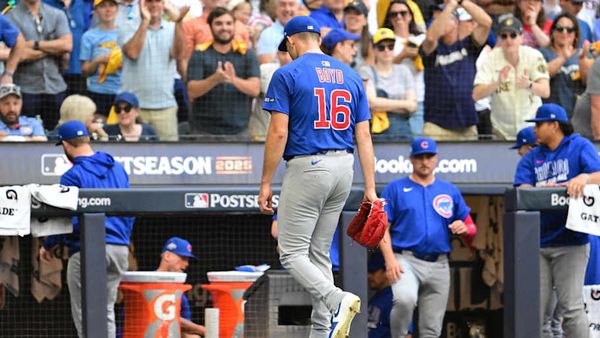As a chess grandmaster, Maurice Ashley has every right to strut around as a champ. Instead, he's always learning.
Even though he became a grandmaster in 1999 — the first Black player to attain that elite status — he remains a student of the game. He admits that he only holds a small fraction of the totality of chess knowledge.
"No one on Earth knows even 10% of what there is to know about chess, not even the world champion," he wrote in his new book, "Move by Move." "To become a grandmaster is to rise to the level of an advanced beginner."
Such humility gives him an edge. Over his four decades as a chess player, he's learned what it takes to develop a champion's mindset.
"If you invest in something, you shouldn't play as if you've lost it or act like you might lose," Ashley said. "You have to be patient, relax, be willing to learn from your mistakes and let the situation play itself out."
Start Early Like Maurice Ashley
Born in Jamaica, Ashley moved to the U.S. at age 12. Two years later as a high school student in Brooklyn, he started playing chess.
When he was two, his mother made the hard decision to leave Ashley and his two siblings in Jamaica while she pursued a better life in America. It took her 10 years to become a U.S. citizen and sponsor her kids to reunite with her.
Ashley, 58, marvels at her sacrifice.
"I didn't understand or fully process the deep risk she took until 25 years later," he said. "The big take-away for me was what it means to care deeply enough to sacrifice yourself" amid great uncertainty for the promise of a better future.
He sees his mother's decision to leave for America through the lens of risk-taking — and applies it to chess. Winning at chess involves the constant calibration of risk.
"You take calculated risk in a state of having perfect information," he said. "But in chess, risk is intuited because you have to decide your next move with limited information. Intuiting risk demands a subtle mind and a very cool head."
Ashley: Rebound From A Stinging Defeat
In addition to managing risk, champions also stay in the moment. They fight off self-doubt and compete with confidence. They trust that they will perform well based on extensive training and preparation.
Ashley learned this lesson after one of his most painful losses. In 1998, he played a grandmaster at a tournament. If Ashley won, he'd earn enough points to earn the title of grandmaster.
"I was so nervous and I made a mistake," he recalled. "I threw away my advantage" and lost the match.
Afterward, another grandmaster — Alexander Shabalov — gave Ashley some advice.
"In order to become a grandmaster, you must first be a grandmaster," he told the 33-year-old Ashley.
Ashley took the advice to heart. He says he realized that he needed to "just trust the process and play." He understood that attaining his childhood dream meant adopting a state of readiness so that he could stay cool under pressure and not worry about his ranking.
"One year later, I was ready," he said. Ashley played with passion, sweeping away mental distractions. Instead of dwelling on how much he craved the title of grandmaster, he embraced the moment and played calmly and freely.
"He experienced failure and learned from it, incorporated those lessons and achieved his goal," said John Hartmann, editor of Chess Life magazine. "He struggled to achieve the grandmaster title and kept working to do it, when he could've given up."
Ashley: Learn To Handle Trash-Talking Opponents
Like many champions, Ashley credits diligent practice as a key to his success. The discipline to keep at it — and grow and learn from experience — enabled him to excel.
"You've got to do it over and over," he said. "You must prepare yourself, analyze your defeats and sharpen the sword" to overcome obstacles and win.
As a teen, he confronted trash-talking from his Brooklyn chess opponents. It took a while to adjust.
"I was flustered and I lost games due to my emotional reactions to their words," he recalled. "I was a pretty sensitive teenager. If they denigrated a relative or something, it took me time to understand they were trying to tap into my insecurities — and I had to do it back to them."
He also shifted his focus away from playing mind games with opponents to refining his thought process. He digested fresh data, applied it, welcomed feedback and synthesized new ideas — creating what he calls "an everlasting loop" of learning and relearning.
Know Even A Grandmaster Can Learn New Tricks
His commitment to lifelong learning serves him well. When he teaches chess to newbies, he likes to adopt a beginner's mindset.
Recently, he asked a group of students, "What's the least number of pieces to get checkmate?" One of them gave an unconventional answer that Ashley initially waved off.
"At first, I was thinking, 'I'm a grandmaster' and that can't be right," he said with a laugh. "Then I opened my mind and realized I was wrong."
Tony Rich, technical director of the Saint Louis Chess Club, admires how Ashley engages beginners.
"He's so gracious," Rich said. "Amateur players will tell him about all their smart moves and he will listen and ask questions," whereas other grandmasters might stay aloof or bask in their ego.
Ashley's curiosity not only helps him build rapport with others but also expands his knowledge.
"There's an indicator if you'll be good at chess," Rich said. "It's the grit to figure out what you did wrong and figure out how to get better. Some players storm out of the playing hall after they lose," but Ashley prefers to stay put, replay moves in his head and calmly learn from his mistakes.
Become A Master Communicator
Ashley's flexibility also works to his advantage. He's able to adjust quickly to fast-changing events.
As a chess commentator, Ashley's adept communication skills help audiences appreciate the nuances of the game. But mistakes can mar a live broadcast.
In a chess tournament in Leuven, Belgium, Ashley was recording his commentary in a 14th-century castle with poor acoustics. The audio was garbled.
"So the sound crew put a cardboard box over Maurice's head with foam around it and put the microphone outside the box," Rich said. "Maurice didn't bat an eye or complain."
As a commentator, Ashley's expressiveness makes chess come alive for fans and newcomers alike.
When Ashley was announcing a game in 1995, Hartmann recalls a particularly memorable comment, "That piece is posting up like Patrick Ewing."
"He doesn't get stuck in technical jargon," Hartmann said. "He has an amazing way of making chess relatable to everyone."
Maurice Ashley's Keys:
- The first Black chess grandmaster who's also a top chess commentator and coach.
- Overcame: Growing up in Jamaica without his mother who left for America to pave the way for him to join her.
- Lesson: "How does one go about controlling complexity? You can't. What is possible is to develop the right state of mind to approach complex situations by being flexible and accepting change as a necessary feature, not a bug."







